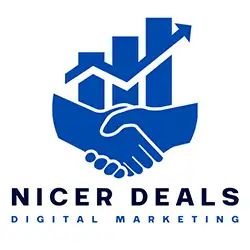If you’re looking to enhance your affiliate sales game, then email marketing is the key. In this article, we’ll explore the power of email marketing and how it can significantly boost your affiliate sales. From building a strong email list to crafting compelling content, we’ll dive into the strategies that actually work. Don’t miss out on this opportunity to leverage the power of email marketing and watch your affiliate sales soar to new heights. Email marketing is a powerful tool for affiliate marketers to drive sales and engage with their audience. By creating an effective email marketing strategy, understanding your target audience, and utilizing segmentation and personalization, you can craft compelling email content that drives clicks and conversions. In this comprehensive guide, we will explore the various elements of a successful email marketing campaign, from building an engaged subscriber list to designing eye-catching email templates. We will also discuss best practices, overcoming common challenges, and monitoring and analyzing the performance of your email marketing efforts. Whether you are new to email marketing or looking to optimize your existing strategies, this guide will provide you with valuable insights and tactics to boost your affiliate sales.

Understanding the Target Audience
Understanding your target audience is crucial for creating an effective email marketing strategy. By knowing who your subscribers are, their demographics, interests, and pain points, you can tailor your content to resonate with them. Conducting market research, analyzing customer data, and utilizing surveys or feedback forms can provide valuable insights into your target audience. Segmenting your email list based on customer preferences and behavior can help personalize your messaging and improve engagement.
Setting Clear Campaign Goals
Before launching an email marketing campaign, it is important to establish clear goals. Are you aiming to drive sales, increase website traffic, or boost brand awareness? Defining your objectives will guide your strategy and help you measure its success. Set specific, measurable, achievable, relevant, and time-bound (SMART) goals that align with your overall business objectives.
Segmentation and Personalization
Segmentation and personalization are key elements of a successful email marketing campaign. By dividing your email list into smaller segments based on demographics, interests, or purchase history, you can send more targeted and relevant content. Personalization goes beyond simply addressing subscribers by their name. Use dynamic content and behavioral triggers to deliver personalized recommendations, offers, or reminders, enhancing the customer experience.
Crafting Compelling Subject Lines
Subject lines are the gatekeepers of your email marketing campaigns. A compelling subject line entices subscribers to open your email and engages their curiosity. Keep subject lines concise, clear, and aligned with the content inside the email. Experiment with different techniques such as using urgency, curiosity, or personalization to capture attention and increase open rates.

Optimizing Email Content
The content of your emails holds the power to engage, educate, and persuade your subscribers. Craft content that is concise, scannable, and easy to digest. Use persuasive copywriting techniques to highlight the value and benefits of your products or services. Incorporate engaging visuals, such as images or videos, to break up the text and make the content more visually appealing. Focus on providing valuable information and actionable insights that resonate with your audience.
Including Strong Call-to-Actions
A strong call-to-action (CTA) is essential for driving clicks and conversions. Your CTA should be clear, concise, and compelling. Use actionable language and create a sense of urgency to encourage subscribers to take the desired action. Place your CTA prominently in your email and consider using multiple CTAs strategically throughout the content.

Automation and Drip Campaigns
Automation and drip campaigns streamline your email marketing efforts and ensure timely and relevant communication with your subscribers. By setting up automated sequences triggered by specific actions or events, you can deliver personalized content and nurture leads at scale. Drip campaigns guide subscribers through a series of emails, gradually building trust, delivering value, and encouraging conversions.
Testing and Measuring Results
Testing and measuring the performance of your email marketing campaigns is crucial for continuous improvement. A/B testing allows you to compare different email elements, such as subject lines, CTAs, or design, to identify what resonates best with your audience. Track key metrics such as open rates, click-through rates, conversion rates, and ROI to evaluate the effectiveness of your campaigns and make data-driven decisions.

Monitoring and Analyzing Metrics
Regular monitoring and analysis of email marketing metrics provide insights into your campaign’s performance and audience engagement. Keep a close eye on open rates, click-through rates, unsubscribe rates, and list growth. Analyze subscriber behavior, such as click patterns, purchase history, or website visits, to understand their preferences and tailor future campaigns accordingly.
Improving and Iterating Campaigns
Continuous improvement and iteration are essential for maximizing the effectiveness of your email marketing campaigns. Use the insights gained from testing and analysis to refine your strategies, content, and targeting. Focus on areas for improvement, experiment with new techniques, and stay abreast of industry trends to stay ahead of the competition and continuously deliver value to your subscribers.
Building an Engaged Email Subscriber List
Building an engaged email subscriber list is the foundation of a successful email marketing strategy. By growing your list with subscribers who are genuinely interested in your content, products, or services, you can achieve higher engagement rates and drive more conversions. Let’s explore some effective strategies for building and maintaining an engaged email list.

Incentivizing Subscription
Offering incentives is a powerful way to encourage visitors to subscribe to your email list. Provide exclusive discounts, freebies, or valuable content in exchange for subscribing. Make it clear what subscribers can expect to receive by joining your list, such as product updates, insider tips, or special offers.
Optimizing Signup Forms
Simplify the signup process by optimizing your signup forms. Minimize the number of required fields to reduce friction and increase conversions. Use clear and concise copy to explain the benefits of subscribing. Consider implementing double opt-ins to ensure the quality of your list and minimize the risk of spam complaints.
Leveraging Landing Pages
Dedicated landing pages can significantly improve your email list growth. Create landing pages that highlight the value proposition of subscribing, include social proof or testimonials, and have clear and attention-grabbing CTAs for subscribing. Drive traffic to these landing pages through various channels, such as PPC ads, social media, or content marketing.
Using Pop-Ups and Slide-Ins
Pop-ups and slide-ins can be effective tools for capturing visitor attention and prompting them to subscribe. Use exit-intent pop-ups to target visitors who are about to leave your website and offer them a compelling reason to subscribe. Experiment with different pop-up designs, messaging, and timing to optimize conversions without negatively impacting the user experience.
Partnering with Influencers
Collaborating with influencers in your niche can help you reach a wider audience and attract more subscribers. Identify influential individuals or bloggers who align with your brand and have an engaged following. Offer them exclusive content or special deals to share with their audience. This not only expands your reach but also builds credibility and trust.
Running Contests and Giveaways
Contests and giveaways are effective tactics for generating excitement and attracting new subscribers. Offer desirable prizes related to your niche and require participants to subscribe to your email list to enter. Promote the contest or giveaway through various channels, such as social media, your website, or affiliate partners, to maximize exposure and increase participation.
Encouraging Social Media Sharing
Leverage your existing subscribers’ networks by encouraging social media sharing. Include social sharing buttons in your emails to make it easy for subscribers to share your content with their followers. Offer incentives for sharing, such as exclusive content or discounts, to incentivize subscribers to spread the word about your brand.
Providing High-Quality Content
Deliver high-quality content consistently to keep your subscribers engaged and eager to receive your emails. Offer valuable insights, tips, tutorials, or exclusive content that aligns with your subscribers’ interests. Establish yourself as an authority in your niche and build trust by consistently providing content that addresses their pain points and adds value to their lives.
Offering Exclusive Benefits
Make your subscribers feel special by offering exclusive benefits or rewards. Provide them with early access to new products or services, exclusive discounts, or VIP perks. Regularly communicate the value they receive as part of your email list and remind them of the exclusive benefits they can enjoy by remaining subscribed.
Regularly Cleaning and Segmenting List
Regularly cleaning and segmenting your email list is essential for maintaining a high-engagement list. Remove inactive subscribers who haven’t engaged with your emails for a certain period. Segment your list based on engagement levels, purchase history, or preferences to ensure you are sending the most relevant content to each segment. This improves open rates, click-through rates, and overall engagement with your emails.
